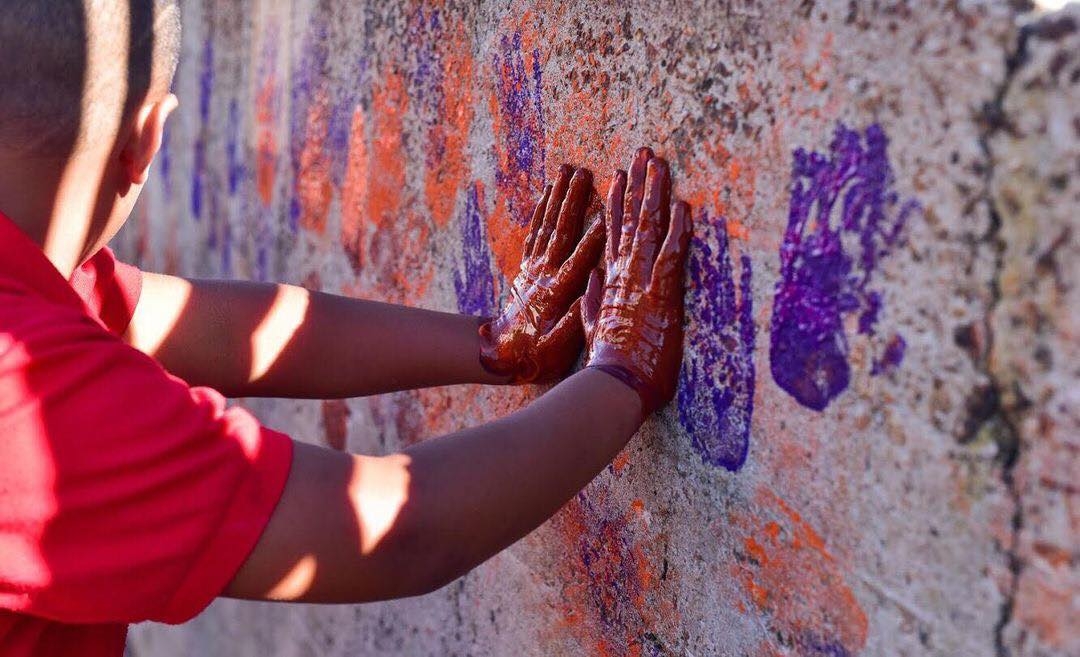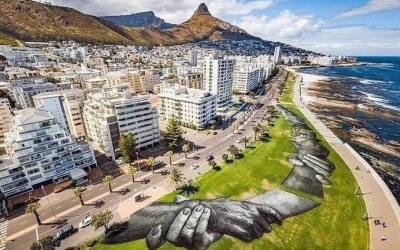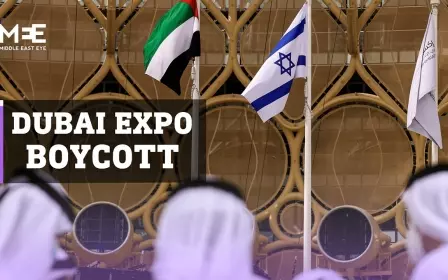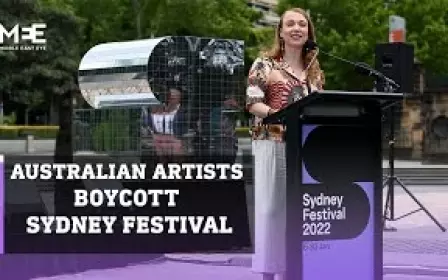Africa's biggest street festival drops ties with Israel after boycott

Africa's biggest public art festival will no longer accept sponsorship from the Israeli government, following a string of withdrawals from their events this week.
Baz-Art, the organisation that convenes the annual International Public Arts Festival (IPAF) in Cape Town, said on Wednesday that following consultations with local civil society groups, it "decided to discontinue the sponsorship agreement with the Israeli embassy in South Africa, including a refund of all contributions".
Pressure had been building on the organisation following the withdrawal of at least four participants from the event's National Public Arts Conference - which runs parallel to the street art festival.
Business and Arts South Africa, a public benefit organisation, also withdrew its support for the event, while community members from the iconic and historic District Six neighbourhood in Cape Town said if Baz-Art failed to end its relationship with Israel, they would not allow the organisation to paint murals in their area, the South African Boycott Divestment and Sanctions (BDS) coalition said.

"In South Africa, we know from our own struggle against apartheid brutality how international BDS contributed to supporting our resistance and bringing down the apartheid regime. For anyone that truly cares about human rights, dignity and freedom, there can be no collaboration with an apartheid state," the South African BDS coalition said in a statement.
Baz-Art told Middle East Eye that while it was committed to ending all relations with the Israeli government, it would continue to work with Israeli artists in their individual capacity.
"Street art is historically a means of campaigning for positive change. We firmly believe in artistic freedom as defined by Unesco as ‘the freedom to imagine, create and distribute diverse cultural expressions, free of governmental censorship, political interference or the pressure of non-state actors'," Baz-Art said.
"Furthermore, we wholeheartedly believe that all artists, irrespective of the colour of their skin, religion, or nationality, must have 'the rights of citizens to access artistic expressions and take part in cultural life' – which represents one of the key ideals of democracy," Baz-Art added.
The Israeli art collective Broken Fingaz, based in Haifa, is currently part of the cohort of artists taking place in the festival that will run from Wednesday to Sunday.
The Israeli embassy in Pretoria did not immediately respond to MEE's request for comment.
Middle East Eye delivers independent and unrivalled coverage and analysis of the Middle East, North Africa and beyond. To learn more about republishing this content and the associated fees, please fill out this form. More about MEE can be found here.




